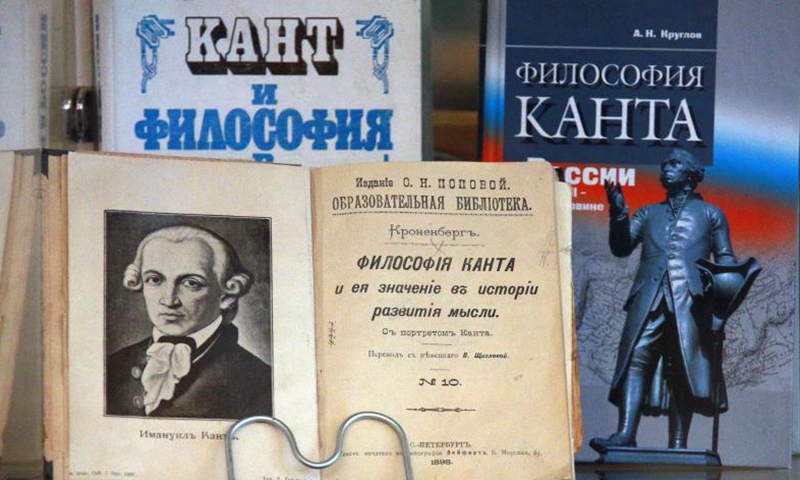Kant’s ethics suck! Chinese philosophy scholar faces criticism for controversial article title
By Li Yuche Source: Published: 2020/12/24 23:27:03

An exhibition at the German philosopher Immanuel Kant Museum. Photo: IC
Kantian Ethics suck!Calling German philosopher Immanuel Kant’s ethics “terribly poor,” Chinese philosophy scholar Han Dongping has become the target of criticism for an article with a bold yet somewhat overweening title.
With the English title “Kant’s Ethics is Terribly Poor: A Critique of Kant’s ‘Groundwork for the Metaphysics of Morals,’” Han’s article was first published in the Journal of Jiangsu Ocean University’s Humanity and Social Science Edition Volume 18 No.5.
Groundwork for the Metaphysics of Morals is Kant’s fundamental work that laid the foundation of Kantian ethics.
Han’s paper aims to show the major fundamental errors in both the German thinker’s methods and the viewpoints of his theory.
The published paper quickly earned a flood of responses online. Though some readers supported Han, saying he represents the scholarly stance of thinking skeptically and critically, many others took Han to task for his word choice in the Chinese title of his work.
While the English title uses “terribly poor,” the Chinese title uses lan, which translates to “Kant’s ethics suck” – a usage that many found to be too informal for an academic journal.
Others have also accused him of purposely choosing such a title in order to pursue more clicks and get people’s attention on the internet.
Han quickly responded to these criticisms in an article he contributed to the Chinese digital newspaper The Paper on Sunday, asking some rhetorical questions of readers such as “Are there academic rules that prohibit the use of spoken language in a paper’s title?” and “How much does this ‘casual expression’ appear in my full text? Isn't it just one ‘suck’ in the title?”
The scholar further defended himself, saying he does not consider “suck” to be a swear word but a colloquial expression used to evaluate things and was more suitable for his paper than similar words such as “very bad,” “broken” or “full of leaks.”
Kantian Ethics suck?
While the center of controversy has mainly been Han’s debatable article title, the content of the article itself has also been subject to criticism since he doubts that Kant’s general method cannot be applied to solve practical problems.
“He is wrong throughout this article, and he doesn’t understand Kant's ethics at all,” a Chinese Western ethics professor at a prestigious university in Shanghai who asked to remain anonymous told the Global Times on Wednesday.
“No matter if Kantian ethics are praised or criticized, Kant’s ethics is a prototype of modern ethics, and Kant’s theory is the clearest to me,” he emphasized.
Immanuel Kant, a German philosopher who is considered to be one of the most influential figures in modern philosophy, posed the idea that human understanding is the origin of the universal laws of nature that shapes our overall experiences.
As a true thinker who read extensively on various topics such as ethics, epistemology and aesthetics, Kant provided the world with three timeless major critiques – Critique of Pure Reason (1781, 1787), Critique of Practical Reason (1788) and Critique of Judgment (1790) – all of which continue to inspire philosophically-minded readers worldwide today.
“I disagree with Han’s viewpoint on Kant,” a philosophy professor in Beijing who also asked to remain anonymous told the Global Times on Wednesday.
“But this is Han’s academic character, and I think academic discussion should be inclusive and liberal, and tolerate different voices and opinions,” said the Beijing professor, who studies Chinese and Western comparative ethics.
“If it is really as what Han says, that Kant ‘sucks,’ then that is indeed a great discovery,” the Beijing professor joked.
The publisher of Han’s paper, the Journal of Jiangsu Ocean University, has also issued a statement regarding this hot debate, saying that it respects Han’s opinion and will not ask him to withdraw the controversial title.
Posted in: BOOKS